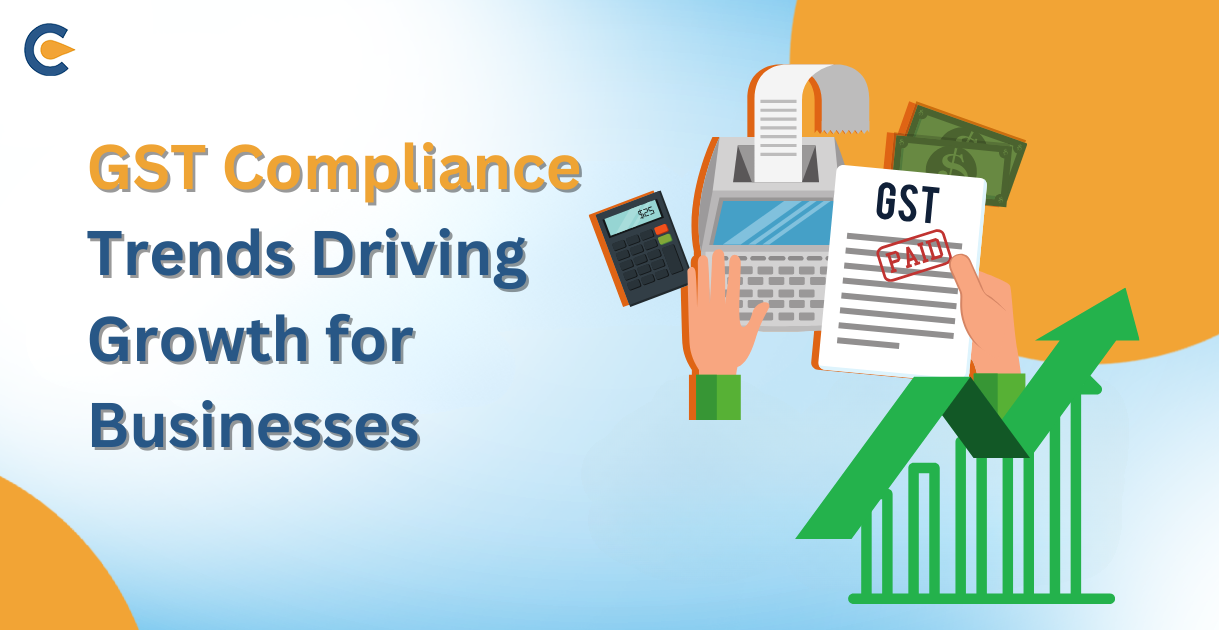The guidelines that govern how we must keep our records up to date, submit invoices, report sales and purchases, and, in the end, pay taxes and file returns have been established by the GST Council. To put it simply, GST compliance is the act of adhering to specific laws and regulations.
For businesses, GST compliance is essential because of legal requirements, financial management, and continuity. It guarantees precise tax computation, averting fines and legal problems. By simplifying access to input tax credits and averting operational disruptions, compliance improves financial stability. Additionally, companies that comply get a competitive advantage since stakeholders view them as trustworthy partners.
Enhancement of financial reporting transparency is crucial for fostering investor confidence. GST compliance helps international trade by facilitating seamless transactions and lowering trade obstacles and customs delays. In general, following the GST regulations guarantees competitive advantage, financial stability, and legal compliance, all of which support long-term growth and sustainability.
Types of GST Compliance
Companies are rated by the government according to their GST compliance so that other companies can determine what level of compliance they have with the taxation department. Businesses are required to maintain compliance under the new GST regime’s compliance guidelines. The government’s GST compliance guidelines must be followed by all companies. Three categories can be used to group these compliance guidelines:
- Registration compliance
- Tax Invoice compliance
- Return filing compliance
GST Compliance Trends Driving Growth for Businesses
The GST compliance trends used for driving the growth of the businesses are:
Streamlined Procedures using E-Invoicing & Reconciliation:
- Using electronic invoicing (e-invoicing) technologies to streamline and automate the invoicing process is amongst the latest GST compliance trends.
- By streamlining the production, sending, and handling of invoices electronically, e-invoicing improves efficiency and lowers manual mistake rates.
- E-invoicing also helps companies and tax authorities synchronize data in real-time, which speeds up and improves the accuracy of input and output tax reconciliation processes, making them more efficient.
Effective Automation for Input Tax Credit and Vendor Compliance:
- The next GST compliance trend is about automating the ITC. Companies are implementing automated solutions to maximize the use of input tax credits and guarantee compliance with vendor-related GST laws.
- This GST compliance trend, automatically confirms GST registrations, tax rates, and invoice details, automation simplifies vendor compliance and lowers the possibility of mistakes and non-compliance.
- Automation enabled effective input tax credit management guarantees that companies can optimize their tax credits while lowering compliance risks.
Transparency in Online Transactions:
- Transparency in transactions that are online is one of the next GST compliance trends. In order to maintain GST compliance, there is an increased emphasis on online transaction transparency as a result of the rapid expansion of e-commerce.
- Accurate reporting and tax collection on e-commerce transactions are made possible by the implementation of transparent systems and processes which encourage fair competition and compliance in the online market.
Automation for Notice and Litigation Responses:
- Automated systems are used to manage accurate and timely responses to tax authorities’ notices, lawsuits, and inquiries.
- Businesses can minimize operational delays brought on by legal difficulties, lower the risk of penalties, and assure timely compliance with regulatory obligations by automating replies.
- Automotive litigation saves a huge of time for the company and, hence, is one of the latest GST compliance trends.
Putting Data-Driven Compliance into Practice:
- Data-driven compliance is amongst the following GST compliance trends.
- This approach entails using data analytics and insights to anticipate compliance opportunities and hazards.
- Businesses may enable educated decision-making and proactive risk management by identifying patterns, trends, and anomalies in massive data sets that may point to possible compliance issues or optimization opportunities.
Digitization of Purchase Register:
- The process of digitizing the purchase register includes switching from paper-based to computerized systems for recording purchases.
- This trend makes it possible for companies to keep thorough and immediately accessible purchase records, which makes audits easier to complete and ensures compliance with GST laws.
Getting Used to the New e-Invoicing Rules:
- Companies need to stay updated of changes in e-invoicing legislation and modify their systems and procedures accordingly.
- To comply with the most recent requirements, software, procedures, and communication protocols must be modified to adapt to new e-invoicing regulations.
Integration of Advanced Technology in Return Filing:
- In an effort to increase accuracy and efficiency, businesses are incorporating cutting-edge technology like machine learning (ML) and Artificial intelligence (AI) into their return filing procedures.
- By enabling automatic data verification, identifying mistakes, and predictive analytics, advanced technology reduces compliance risks and streamlines the return filing process.
Enhancing User Authentication Protocols:
- In order to safeguard sensitive GST related data, organizations are strengthening user authentication protocols in response to the growing importance of data security and privacy.
- To protect access to GST systems and data, strengthening authentication processes include putting multiple authentication methods, encryption, and other security measures into place.
Conclusion
In conclusion, companies aiming for long-term success and growth must successfully navigate the constantly changing terrain of GST compliance trends. Businesses may both assure compliance with GST legislation and seize chances for efficiency and competitiveness in the market by embracing digitalization, automation, and transparency.
Collaborating with experts at Corpbiz, can offer companies vital help and direction as they endeavor to maintain a competitive edge in this ever-changing landscape. Corpbiz is prepared to enable businesses to prosper in the GST era with its extensive range of services, which are designed to address the various demands of businesses. These services include tax consulting, regulatory support, and GST compliance. With Corpbiz, you can fully realize your company’s potential and take the proactive step toward flawless GST compliance right now.
Frequently Asked Questions
What makes GST compliance crucial?
By offering a comprehensive input tax credit system throughout the whole supply chain, GST prevents taxes from cascading on top of one another.
How is GST compliance ensured?
Every registered business must submit returns on a monthly, quarterly, or annual basis. The nature of the company activity mostly determines how frequently returns occur. Online filing of the GST returns is necessary and must be done through the Returns portion of the GST website.
Why is the trend of GST compliance requiring adherence to new e-invoicing regulations?
By adapting, companies may stay compliant with changing legislation, follow trends in GST compliance, and prevent fines or business interruptions.
What role does the movement toward GST compliance play in the integration of modern technologies in return filing?
Integration uses technology to address changing trends in GST compliance and streamline procedures, improving efficiency, accuracy, and security in return filing.
What part does automation play in the trend of GST compliance?
In line with the trends in GST compliance, automation enhances vendor compliance, streamlines input tax credit administration, and speeds up legal notice response.
How does the trend in GST compliance relate to the transparency of e-commerce transactions?
In keeping with current compliance trends, transparency in e-commerce guarantees correct tax declarations, builds consumer trust, and ensures compliance with GST requirements.
What is a noteworthy trend in GST compliance?
In order to improve accuracy and efficiency, the GST compliance trend places a strong emphasis on digitization, automation, and transparency in tax procedures.
How does the move toward GST compliance affect businesses?
By streamlining procedures, automating jobs, and guaranteeing transaction transparency, it promotes growth and improves compliance while saving money.
Why is the trend toward GST compliance centred on e-invoicing?
E-invoicing is in keeping with the trend of digitizing tax compliance by streamlining the invoicing process, improving transparency, and enabling real-time reconciliation.
Is GST compliance mandatory?
Yes, GST compliance is mandatory for all.
Read Our Article: Is It Mandatory To Get GST Registration For Startups?











